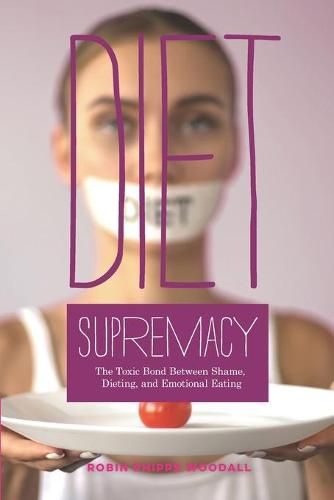Readings Newsletter
Become a Readings Member to make your shopping experience even easier.
Sign in or sign up for free!
You’re not far away from qualifying for FREE standard shipping within Australia
You’ve qualified for FREE standard shipping within Australia
The cart is loading…






In this book, author Robin Phipps Woodall builds on the significant discussion of body image from her first book, Thin Supremacy. Here she expands further to explore the overwhelming-and sometimes traumatic or even tragic-impact that negative body image has on dieting and emotional eating. From the viewpoint of evolutionary psychology, in Diet Supremacy, Woodall illustrates how fears of social stigma, based on body fat, trigger primitive survival mechanisms that motivate people to seek safety and control through forms of diet supremacy. The toxic bond between negative body image and dieting while surrounded by abundance of food, promotes the angst and strain responsible for increasing one’s feeling of deprivation. The result is an increase in cravings, perceived hunger, and the impulsive drive to eat excessively. This is an important topic every weight-loss business, dieter, emotional eater, and eating disorder specialist needs to know about, understand, and especially discuss with those affected.
$9.00 standard shipping within Australia
FREE standard shipping within Australia for orders over $100.00
Express & International shipping calculated at checkout
In this book, author Robin Phipps Woodall builds on the significant discussion of body image from her first book, Thin Supremacy. Here she expands further to explore the overwhelming-and sometimes traumatic or even tragic-impact that negative body image has on dieting and emotional eating. From the viewpoint of evolutionary psychology, in Diet Supremacy, Woodall illustrates how fears of social stigma, based on body fat, trigger primitive survival mechanisms that motivate people to seek safety and control through forms of diet supremacy. The toxic bond between negative body image and dieting while surrounded by abundance of food, promotes the angst and strain responsible for increasing one’s feeling of deprivation. The result is an increase in cravings, perceived hunger, and the impulsive drive to eat excessively. This is an important topic every weight-loss business, dieter, emotional eater, and eating disorder specialist needs to know about, understand, and especially discuss with those affected.